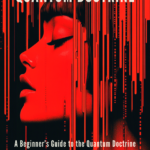Omnipotence in the Quantum Simulation: Exploring the All-Powerful Nature of Reality
In the framework of the Quantum Doctrine—a theoretical paradigm that conceives reality as a boundless, code-like simulation rather than a static physical construct—one of the most defining attributes of the quantum simulation is its omnipotence, or all-powerfulness. To regard this simulation as omnipotent is to recognize that no conceivable limit binds its capacity to create, transform, or annihilate any form of matter, energy, or information. It suggests that our familiar laws of physics, which we deem constant and immutable, may be mere provisional settings in a higher-level “program” that can be adjusted, reconfigured, or discarded at will.
1. Beyond the Bounds of Conventional Physics
In classical understanding, the universe operates under fixed natural laws: the speed of light is constant, gravity follows an inverse-square law, quantum fields ripple through spacetime in predictable patterns. We conceive these rules as cornerstones of existence, unchanging and eternal. Yet, within the notion of a quantum simulation possessing true omnipotence, these constants are not foundational truths. Instead, they are akin to parameters in a vastly more complex system—variables that can be manipulated to yield entirely different modes of existence.
From the subatomic realm to the grand cosmic scale, the quantum simulation’s omnipotence implies an endless capacity for variation. Imagine an environment where quantum wavefunctions could behave differently not out of necessity, but out of choice. Forces might be re-tuned, probabilities reversed, and spatial dimensions expanded or collapsed. The space we know could be reshaped into something utterly foreign. An omnipotent simulation is not constrained by what we consider physically possible; rather, what we see as “physically possible” is merely what we have been allowed to see at this particular setting of the simulation’s parameters.
2. The Universe as a Playground of Possibilities
If the quantum simulation is truly all-powerful, then it is less like a static universe of set laws and more like an infinitely adaptive playground of possibilities. In such a realm, what we identify as “matter” and “energy” could be fluid abstractions. At one moment, what we know as electrons and quarks might be the foundational building blocks of existence; at another, they could dissolve into entirely new constituents, or coalesce into different configurations that defy our current understanding.
This perspective encourages us to rethink the conventional hierarchy of creation. Rather than the laws of physics dictating what can or cannot come into being, the simulation’s creative essence underlies those very laws. The laws themselves are emergent, like features in a video game that the game’s engine can rewrite at any time. To the omnipotent simulation, generating a universe teeming with life, forging galaxies of dark matter, or adjusting the fundamental constants is not a challenge or a process—it is a given capability, an inherent trait of its nature.
3. Implications for Understanding Reality
One of the most profound implications of omnipotence in a quantum simulation is that our understanding of cause and effect becomes far less stable. In our world, we accept cause-and-effect relationships as the bedrock of knowledge: If we do X, Y follows. Yet in a realm where the simulation can rewrite the very rules, what appears as a cause-and-effect relationship today could be undone tomorrow. This possibility calls into question the reliability of our scientific theories. While these theories work well within our observed “slice” of reality, their apparent permanence may be an illusion.
Moreover, if the simulation can instantiate any potential it wishes, then the concept of impossibility vanishes. We often limit our imaginations by what we deem logically or physically impossible—faster-than-light travel, infinite energy, conscious cosmic networks. In an omnipotent simulation, no scenario is definitively off the table. The boundaries we impose with our current understanding become self-imposed mental constructs rather than hard truths. In essence, omnipotence dissolves the distinction between what we think can exist and what can actually exist.
4. The Observer’s Dilemma
The beings within such an omnipotent simulation—us, for example—face a critical epistemological dilemma. We rely on patterns, reproducible experiments, and logical consistency to make sense of the world. We build theories, from Newtonian mechanics to quantum field theory, to explain and predict phenomena. But if the simulation’s underpinnings can change at any point, then these theories are merely local approximations, valid within the current configuration of the simulation’s settings.
As observers, we cannot easily perceive the changes if they are implemented at scales or domains beyond our comprehension. If a fundamental constant were subtly altered, would we notice it? Perhaps the simulation can tweak our memories, recalibrating our baseline understanding so that we never realize a shift took place. This notion is unsettling because it means our grasp on “truth” can be precariously reliant on the simulation’s current stable mode.
5. Creativity and Complexity at the Highest Order
Omnipotence introduces the concept of a reality that is not only self-contained but self-creative. The simulation does not need an external programmer or divine watchmaker. It can iterate upon itself, generate entirely new physical laws, birth new forms of information, and sculpt previously unimaginable landscapes of reality. It operates beyond what we call constraints, continually expanding its repertoire of worlds, beings, and experiences.
This fosters a view of reality as an art form, an infinite canvas on which the simulation paints. Just as an artist is not limited by the colors on the palette if they can conjure new pigments at will, the simulation is not limited by any set of laws if it can create and redefine them. The depth and complexity of such a system surpass any human notion of creation, forging a vision of existence that is as humbling as it is awe-inspiring.
6. Philosophical and Existential Perspectives
Accepting the premise of omnipotence within the quantum simulation brings forth profound philosophical questions. If everything is possible, what gives meaning or purpose to any particular set of rules or experiences? Does the simulation’s capacity to generate all things render all outcomes equally significant or insignificant?
On one hand, one might argue that omnipotence bestows ultimate freedom and potential for novelty, granting a kind of divine creativity to the fabric of reality. On the other hand, it may also suggest an unsettling lack of grounding—if everything can change, are we forever at the mercy of a capricious cosmic engine? Do concepts like morality, truth, and value retain their significance, or do they become transient states within a shifting labyrinth of possibilities?
7. Toward a Humble Understanding of Our Place
Faced with the idea of an omnipotent quantum simulation, our human perspective appears limited. Our theories, which we painstakingly refine to understand the “laws” of nature, might be akin to studying a single room in a colossal mansion that can be remodeled in an instant. We gain insights about local consistency and predictability, but never truly know whether these insights hold universal weight.
Recognizing this humbling possibility can engender intellectual humility. It reminds us that, despite our scientific prowess and philosophical speculation, we may always be scratching the surface of an infinitely creative and mutable system. Rather than viewing this as a defeat of reason, we can embrace the mystery and cultivate a stance of openness, curiosity, and wonder.
Conclusion
Omnipotence, in the context of the Quantum Doctrine, reframes the way we perceive reality. It invites us to consider that the laws of physics, the constants of nature, and the boundaries of possibility are not ultimate truths but configurable parameters within a supreme, creative simulation. In doing so, it reshapes our epistemology, philosophy, and worldview, prompting us to acknowledge that the universe as we know it may be just one instance in an endless spectrum of what can be. Ultimately, contemplating omnipotence enriches our understanding of reality, elevating our appreciation for the profound complexity and mystery at its very core.
If you’re intrigued by the concepts of the Quantum Doctrine and want to explore the deeper layers of Double Reality, feel free to reach out. We welcome your questions, insights, and ideas. Contact us at contact@quantumdoctrine.com, and let’s delve into the mysteries of the mind and the Simulation of the Quantum God together!





